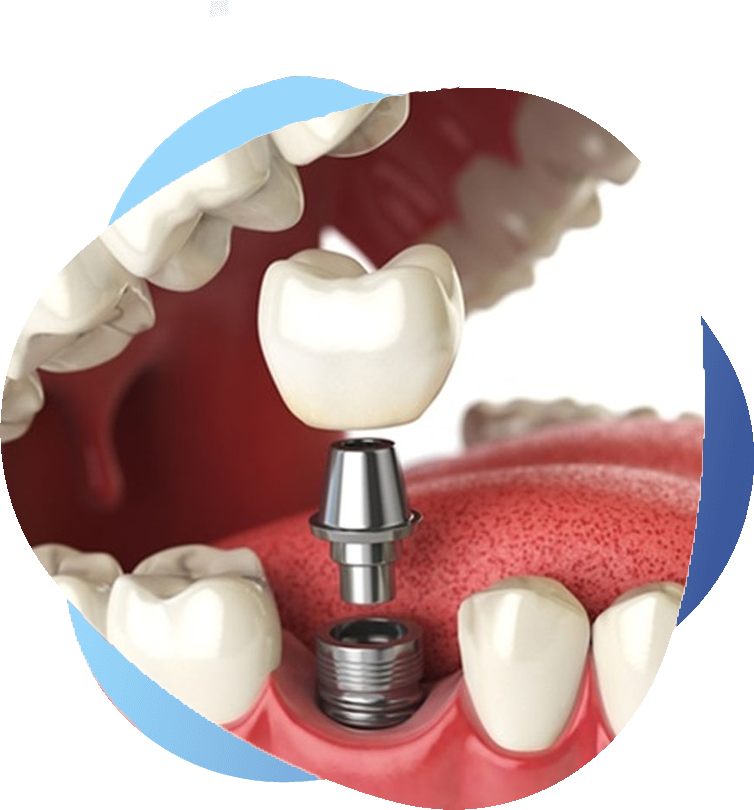Dental Implants
Implants are substitutes for lost teeth. In this procedure we need not cut down the teeth either side for crowns to support the bridge.Designed for toothless areas, this treatment involves implanting artificial dental roots made of titanium which is a special metal to the jaw bone for a natural feel as well as aesthetic satisfaction.

Overview
Implants serve as substitutes for lost teeth, offering a solution that eliminates the need to cut down adjacent teeth for supporting bridges. In this procedure, artificial dental roots made of titanium are implanted into the jaw bone, providing a natural feel and aesthetic satisfaction. This safe and superior alternative to traditional bridges or dentures involves a small, localized operation conducted under local anesthesia.Implants can support various dental prostheses, including crowns, implant-supported bridges, dentures, and even serve as anchorage for orthodontic tooth movement. The use of dental implants allows for unidirectional tooth movement without reciprocal action.
Implant-Supported Denture and Bridge
This approach is employed when all teeth are absent. An implant-supported denture offers a permanent, fixed solution that prevents bone resorption, providing a natural appearance without altering taste sensations. The procedure takes a minimum of 6 months, involving two stages: implant placement and bonding with the bone, followed by attachment of the replacement tooth.
Advantages
- Implants are a safe, well-established, and tested treatment.
- They offer aesthetic perfection, resembling natural teeth.
- Cleaning around the implant is as straightforward as with a natural tooth.
- They do not require support from adjacent natural teeth, avoiding disturbance to surrounding teeth.
FAQs 1. Would implants be right for me?Ans:- An implant consultation can help determine if implants are suitable for your specific case.
2. Are implants safe? How long will they last?Ans:-Implants are a tried-and-tested treatment with an established safety record. Generally, implants are expected to last a lifetime, but longevity can be influenced by changes in bone over time.
3. I have some of my own teeth. Can I still have implants?Ans:- Yes, implants can replace any number of teeth, from a single tooth to a complete set.
4. Do implants hurt?Ans:- Placing implants involves a small operation under local anesthesia, ensuring you won't feel pain during the procedure. Some discomfort may be experienced during the week following surgery, typically due to stitches and the normal healing process, alleviated by prescribed medication.
5. Can I have the new teeth straight away?Ans:- No, the implants need time to bond with the bone, taking at least 3 months in the lower jaw and 6 months in the upper jaw. Temporary restorations may be provided in the meantime, and complete denture wear is possible throughout the healing period once adjusted after surgery.
